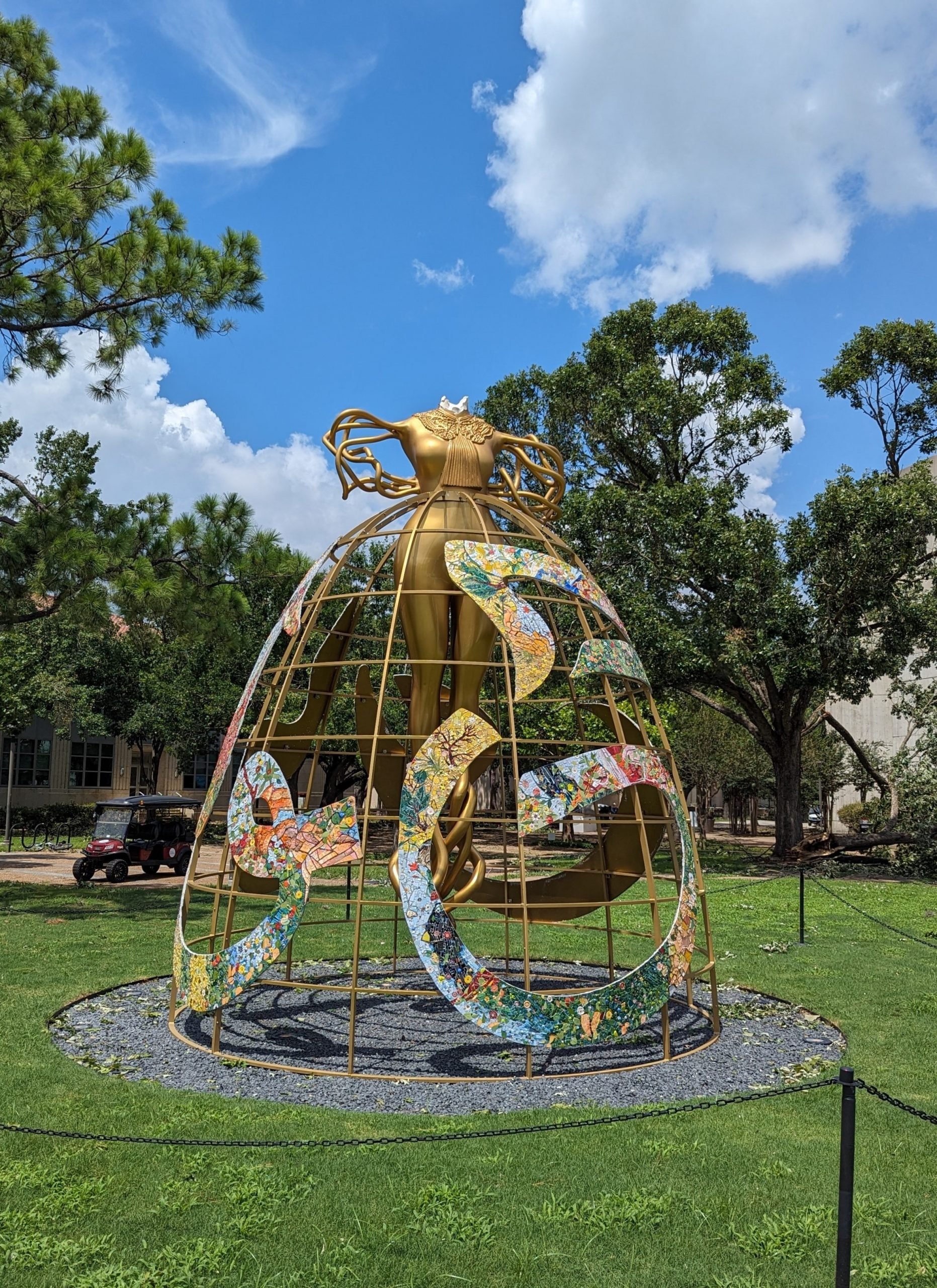
A sculpture at the University of Houston by the Pakistani American artist Shahzia Sikander honoring the rights of women is believed to have been beheaded by vandals as Hurricane Beryl loomed over the Texas coast.
“We were disappointed to learn the statue was damaged early Monday morning as Hurricane Beryl was hitting Houston. The damage is believed to be intentional,” a spokesperson for the university confirmed in an email.
University police are currently investigating the vandalism and conservators have also been called in to advise on the necessary repairs. “We have been in contact with the artist to repair the artwork as quickly as possible,” the spokesperson said. They did not answer a question about what security measures are normally in place to protect against such acts.
The sculpture, titled Witness, is one of three works created by Sikander as part of her 2023 project commissioned by the Madison Square Park Conservancy and Public Art of the University of Houston System addressing the status women’s autonomy in the U.S. It was first installed at New York’s Madison Square Park and the Manhattan Appellate Courthouse’s rooftop last year. The companion sculpture Now (2023) remains in New York.
The 18-foot-tall golden female figure features arms and legs that end in root-like structures, symbolizing the resilience and grounded nature of women. Her hair is braided into the shape of ram’s horns, a traditional symbol of strength across various cultures, though has been branded as Satanic by right-to-life groups.
In February, anti-choice organization Texas Right to Life launched a petition protesting the university’s installation of the statue, urging it to “keep the Satanic abortion idol out of Texas” by canceling the exhibition. The group was joined by Texas Values, another advocacy organization, which called for the University of Houston Board of Regents to “step in and remove it immediately.”
In response to criticism over the sculpture, the university cancelled a talk by Sikander and an opening celebration for the sculpture in March.
Shahzia Sikander in front of her sculpture Witness at Madison Square Park, New York, 2023. Photo: Angela Weiss / AFP via Getty Images.
In an email to the artist viewed by the New York Times, the head of the university’s public art program said the school was “disturbed” by the “unbelievable and regrettable act” of vandalism. It was seeking to repair the work and damage brought by the hurricane, which did not directly hit Houston but brought high winds and flooding to the area.
Sikander, in remarks to the newspaper, said she wants to leave the piece damaged. “I don’t want to ‘repair’ or conceal,” she said. “I want to ‘expose,’ leave it damaged. Make a new piece, and many more.”
“The artist requests that we leave the sculpture as is without any repairs,” a spokesperson for the school said. “We respect the artist’s wishes and will leave the sculpture as is.”